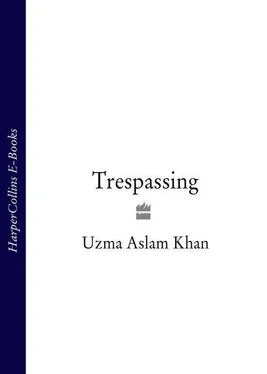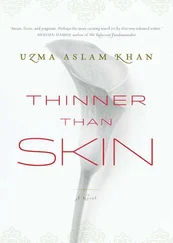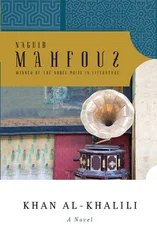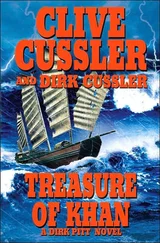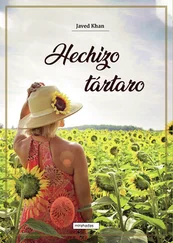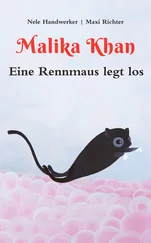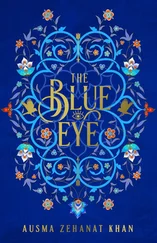From the clouds, it looked as if a forest of yellow butterflies starting off on some mammoth migration had suddenly lost its bearings. The creatures flew into each other, pirouetted and fell, reversed direction, landed in heaps, or else on straw, bark and brick. And when they broke free, Daanish drifted with them.
He saw rows of gray bungalows with families on their porches. The star-spangled banner flapped on shingle rooftops. More butterflies flew by, most still yellow, though a few were pastel pink or blue. They peeped through the slots of the porch floor-planks. Others splayed on the grass beneath. Still others wound between the fingers of the happy waving families on streets named after Columbus and Cortes.
Daanish flew, covering towns in seconds, like a camera scan for Hollywood or ABC News.
A familiar figure stalled outside a flower shop on Bartholomew Boulevard. Daanish hovered in the sky, intrigued. Below was himself, sauntering past a Hallmark gift shop. The shop’s windows too were strewn with butterflies. They bore words that said, We Kicked Ass; Our Colors Don’t Run; Everybody Party.
‘It’s the biggest parade in history,’ said the shopkeeper as he held the door for an old lady in a dress splashed with sunflowers.
She nodded, clasping a little brown bag with greeting cards and colored bows in one hand, and a terrier with a yellow butterfly between its ears in the other. ‘Makes you proud, doesn’t it? Our boys did so well.’
‘Uh-huh,’ said the shopkeeper. ‘Have a nice day, dear.’
Daanish saw himself striding over to Liam’s Rambler. Was that the expression he always wore? His brow was creased, jaw clenched, back stiff, gait undecided. He hopped impatiently on the pavement. He kicked the post from which Colonel Sanders watched him with a yellow butterfly on his elfin beard. He glanced at the flower shop, then back at the car, then down another street. He was asking himself: Why should I wait for that bastard? He was reasoning: Because he’s not a bastard.
Seconds later, Liam came out of the flower shop, his forelock and grin partially concealed behind a large cluster of pink zinnias and yellow irises. He twirled them proudly for Daanish’s inspection. ‘I always get irises for Iris, though zinnias are her faves.’
Daanish scowled, ‘You could have done us a favor by choosing a different color at least. All this glorification in yellow is sickening enough.’
‘There’s glorification in every color,’ retorted Liam. ‘The ribbons are yellow but the ticker tape’s a rainbow. Does that mean I can’t get my girlfriend flowers?’
‘The war’s destroyed hundreds of thousands of people. Your media calls it a work of art, and your people wave pompoms.’ He pointed to the ribbons and the tape. ‘Doesn’t it enrage you?’
In response, Liam tossed his head. His forelock fell back over his eyes like a curtain.
Daanish nodded. ‘I’m so happy for you. Bravo. You didn’t lose like in Vietnam. You’ll never lose again.’
Liam climbed into the car and unlocked the passenger door. Daanish got in. Liam said, ‘Iris is giving her first public recital today. That’s the only reason I’m celebrating.’
Daanish’s heart raced. Since the war began, he and Liam had said nothing about it to each other. It was as if, by staying silent, Liam was telling him: I’m not a part of it. And Daanish’s silence replied: I’m afraid to know you. Really know you.
But now, he had to know.
‘You’re not celebrating the war, Liam, but you’re not exactly worked up about it either. You said nothing when your country began the air strikes, nothing when all the propaganda glittered from your television …’
‘Will you drop the bit about your? This isn’t my war. I didn’t start it. Hold these a minute, would you?’ Liam handed Daanish the bouquet so he could wear his seatbelt.
‘I’m not your fucking vase,’ Daanish answered. ‘I’m trying to talk to you. I can’t believe how bloody smug you are.’
Liam arranged the flowers carefully on the backseat. ‘You don’t wanna go you can get out now.’
Daanish gaped at him. Not this — not Liam too. Liam and Wayne were different. He took a deep breath.
If he got out of the car, he knew Liam’s anger would pass sooner than his. By the time Liam arrived at the recital, he’d have found his loveable, demented, equine grin. For him, nothing would change. He’d think of Daanish with a slow shake of his head. Perhaps his lips would tremble a little. He might even be hurt. But he’d never give a thought to the things Daanish desperately needed him to think about.
Behind the wheel, the olive pupils of Liam’s milky-green eyes darkened. His lips really did tremble, though just barely.
Dammit, thought Daanish. He’s hurt. About which I’m to feel guilty. How did Liam manage to make willful ignorance look like innocence? How did he make Daanish look like the villain? Perhaps this was the greatest power of a superpower.
Up in the sky, Daanish took one last glance at Bartholomew Boulevard. There was Liam, blissful, beautiful and wronged. Daanish flew away, aware that he was about to say, ‘Let’s forget this then.’ He would go to the recital.
Now he skimmed rather than hovered above ground. The world blurred. When next it cleared, he was standing at the foot of his parents’ bed, listening to their alarm clock with the BBC chime.
It was seven o’clock, time for the doctor to wake up. Anu was in the kitchen. Daanish waited patiently, the ambergris candles discovered — his father had hidden them in an airline sick bag, amongst his dirty linen. Daanish had lit them. They smelled like khas, like grass beginning to smoke. His father had given him a clue: whale vomit. He’d found them. He was giggling. At last the doctor stretched awake. ‘Ah, Daanishwar! My clever boy.’ His chest hair was damp with sweat. Daanish buried his face in it, carefully holding the candles up. The clock rang again: four bells ascending, four descending. ‘My clever boy,’ his father repeated. Daanish breathed deeply the perfume wafting around them.
But before he could hold the scent, it vanished. An air current sent him flying forward again. It dropped him in the fourth row of an auditorium. The room had him awestruck. The chairs were cushioned. Desks never rattled. Wall-to-wall carpeting. Controlled temperature. Acoustics so crisp he could hear nails scrape denim when the student in the first row scratched. The plush blue carpet was like a woolen blanket, freshly laundered with Squeeze for extra softness, coating the atmosphere in a pleasant hum. In Karachi, his school had seating on one level. Tall students were asked to sit at the back, where the teacher was invisible. By age fourteen, Daanish, the tallest boy in the school, could only keep up with lectures by sharing the notes of short boys.
But this room was heaven! He could see everything! The front wall had a poster with writing in gold:
Trust in your choices
Everything is possible
Wayne marched in front of the sign. He pointed to it. He told his students to always reach for the truth. He clenched his fist, declaring, ‘Courage does pay!’
Daanish was off again. In dizzying succession he saw: himself in the sunken garden, looking up at a barn owl in a cedar tree. The bird spun its phantom head, ‘Hoot!’
He saw: maple syrup dripping onto a plate of pancakes at the 24-hour Pancake House. The plate was Becky’s. Daanish watched her eat. He couldn’t afford his own. She wasn’t offering.
He saw: the smooth gold medallion of the key-chain his grandfather had given his father when he became a doctor. On one side was a Pakistani flag, its crescent a neat, sure smile. The little globe swayed back and forth, back and forth, flipping minutes into seconds, seconds into hours. Maple syrup hung on the edge of the porcelain white lip of a jug. It grew to the size of the medallion but would not fall on the soft cakes below. Suspended on the jug’s lip, it waited for Daanish’s next paycheck. When this was cashed, the sweet blob dropped plumb on to the tip of Daanish’s tongue. He had all the time in the world to savor it. He chewed while watching Heather and her friends dance topless in the cornfields, mimicking American Indians. They chanted, ‘I can feel the spirits of the gods. I am one with my body. They are one with my body. The crop will grow.’
Читать дальше
Конец ознакомительного отрывка
Купить книгу
